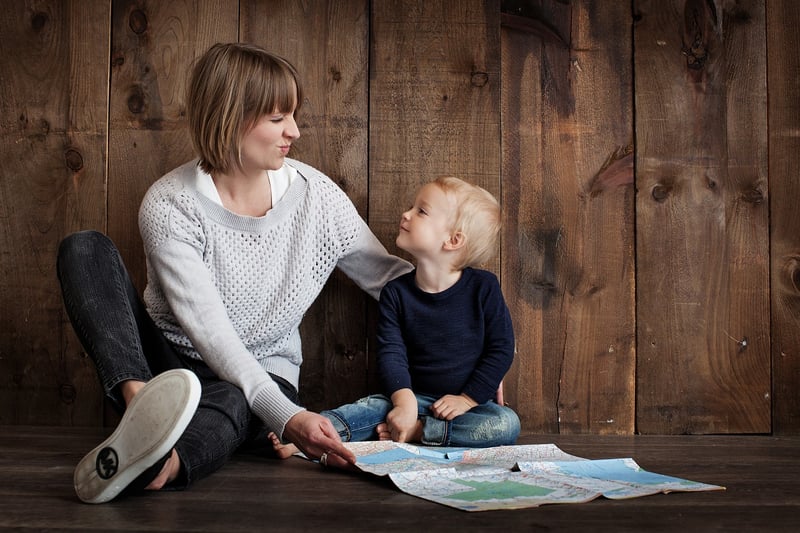 Via
Pixabay (2016), CC0 Public Domain.
Via
Pixabay (2016), CC0 Public Domain.
“Now be on your best behavior!”
I’m sure many people, like myself, heard this phrase when we were little children. When someone was coming over to our home, or if we were going to an event, it was important that my siblings and I used good manners and politely interacted with others. Now that I am an adult, I am no longer am commanded to use my “best behavior,” but I still subconsciously follow these words. When I meet with other people in public, I instinctively use my “company behavior.”
Using good manners and polite behavior is important, and it is admirable that we guide our children—and ourselves—in treating others with respect and dignity. It’s good to be free and honest with our relatives. We should be able to comfortably talk with our siblings in a way that we would not speak with the person manning the cash register at the store. Yet, we can take things to an extreme. There are times when the stress at home just piles up. Stacks of dirty dishes, cranky children, and misunderstandings with a spouse can all build, and we snap. We cling to our excuses of stress, and allow our hardships to get the better of us. I once heard a priest say that we let our behavior slide when we are with close family, because we know that they will still love us and be there for us, no matter what we do. It is indeed reassuring that we can vent and blow off steam in front of others, and know that they will stay by our sides. However, we can take advantage of this. While we—and our children—use our “best behavior” in public settings, we let our very worst behavior slip out at home.
I have found that the wounds which people often carry around for years frequently come from their loved ones. Harsh words that are spoken at home by a parent, sibling, or child can painfully burn into one’s memories for a lifetime. Acts of exasperation or anger can form lasting impressions that are difficult to shed. While we speak of “being on our best behavior” while in public, we often fail to imitate this behavior in the home—where our words and actions have a deep, lasting effect on those whom we are close to. Is this tendency helpful if we are striving to bring our families to God? Should we continue to put on our most polite attitudes while in public, and allow our anger or stress to take control of the atmosphere in our homes?
[Tweet "Should we save our best behavior for public and allow anger to control us at home?"]
Family life does come with particular trials and hardships. These small irritations often are what lead us to lash out at others. However, instead of using all of these difficult things as excuses to justify our anger, we can instead take our struggles as a challenge to greater love. In the apostolic exhortation Amoris Laetitia, Pope Francis speaks about the way in which difficulties can strengthen people, as he notes:
“The life of every family is marked by all kinds of crises, yet these are also part of its dramatic beauty. Couples should be helped to realize that surmounting a crisis need not weaken their relationship; instead, it can improve, settle and mature the wine of their union.” (Amoris Laetitia #232)
Instead of only using our “best behavior” for public scenarios, let us bring it into our homes. This is difficult, for it requires that we rise above the easiest responses to our problems. If I have been holding a crying baby for most of the day, and have been trying—and failing—to write articles, do the laundry, and clean my home, then I’ll most likely be irritated. And, in an instance such as this, it would be far easier for me to fling impatient words at my husband when he walks in the door after work. Alternatively, I can use these little crises to improve the loving atmosphere in our home; I can calmly greet my husband, and ask for his help in accomplishing what I need to do.
Bringing my “best behavior” to the home is hard. It requires humility, patience, and a desire to change ourselves for the better. However, when we seek to create wellsprings of love and good behavior in our homes and families, our lives—and world—will change. Are we willing to accept this challenge?
Copyright 2016 AnneMarie Miller
About the Author

AnneMarie Miller
A bibliophile, wife, mother of young children, and lover of the Liturgy, AnneMarie Miller enjoys exploring the manifold—and quirky—ways in which God speaks. She can often be found reading books to her kids, burrowing her toes in the red Oklahoma dirt, or sipping black coffee. Her reflections on Catholicism, literature, and hope can be found on her blog, Sacrifice of Love.


.png?width=1806&height=731&name=CatholicMom_hcfm_logo1_pos_871c_2728c%20(002).png)
Comments